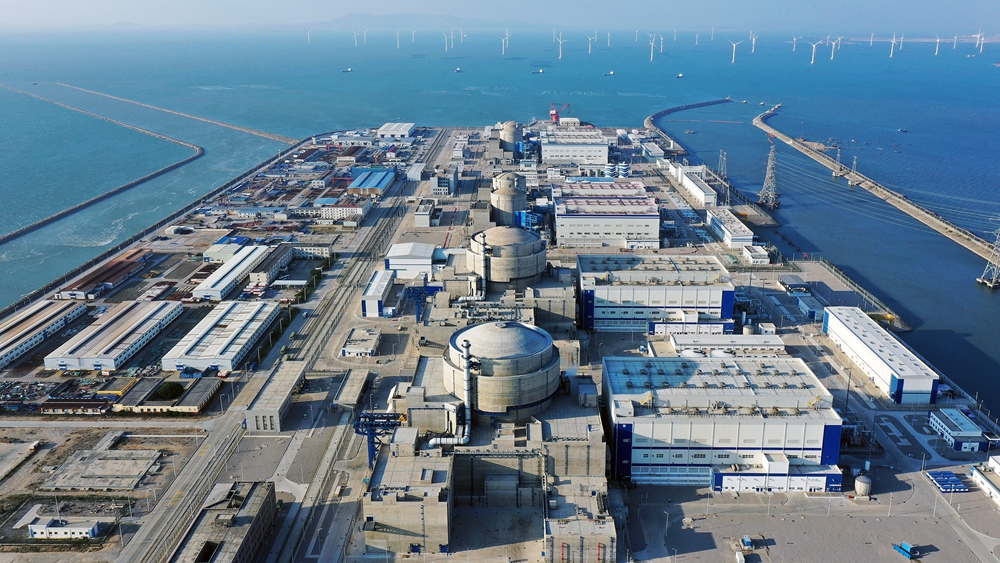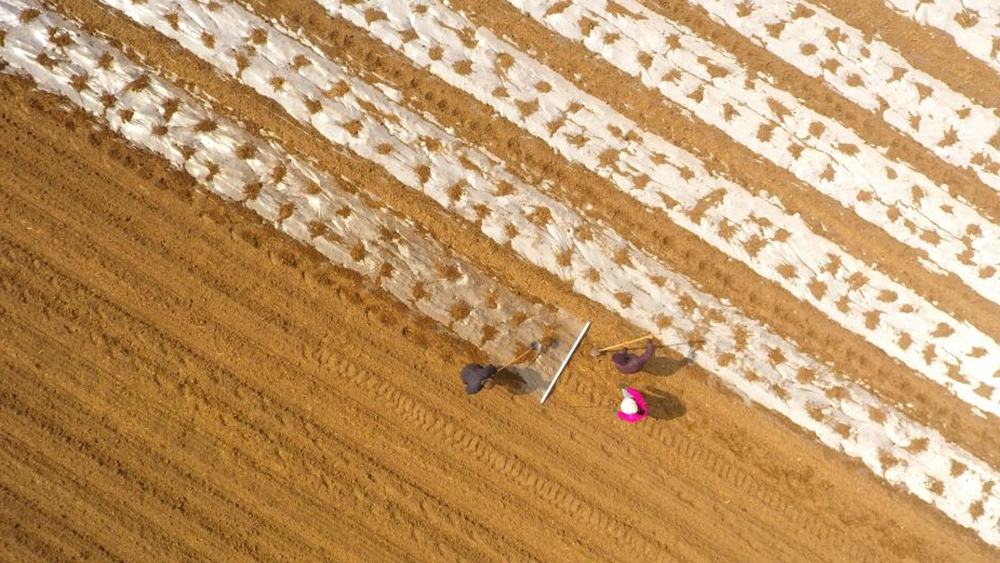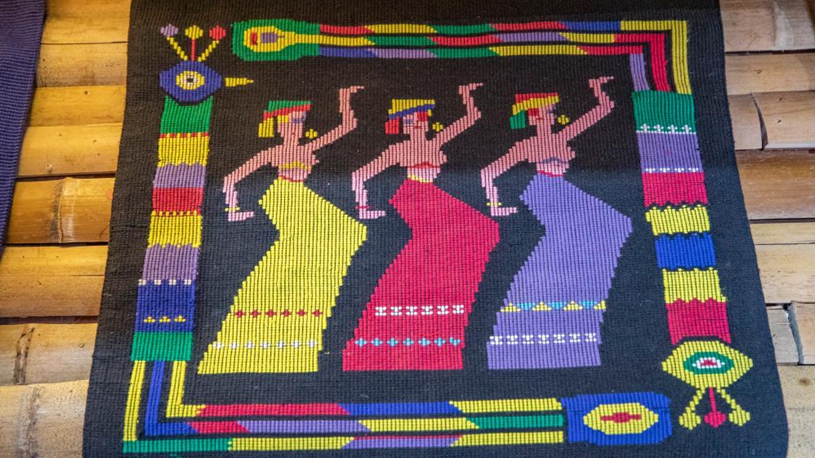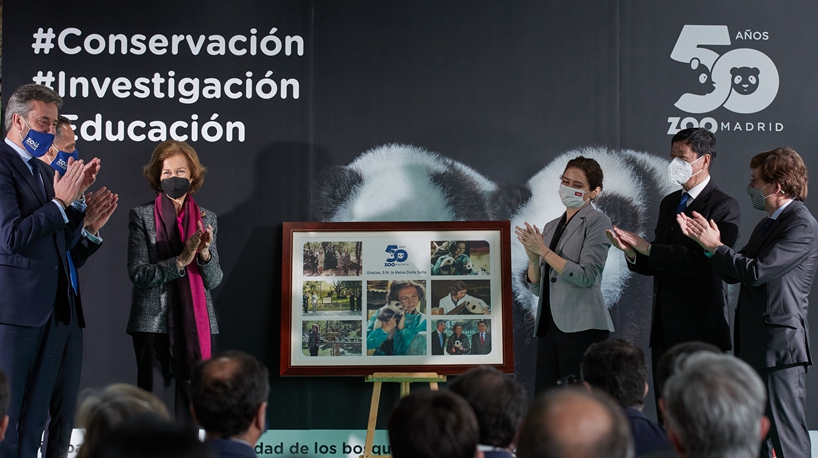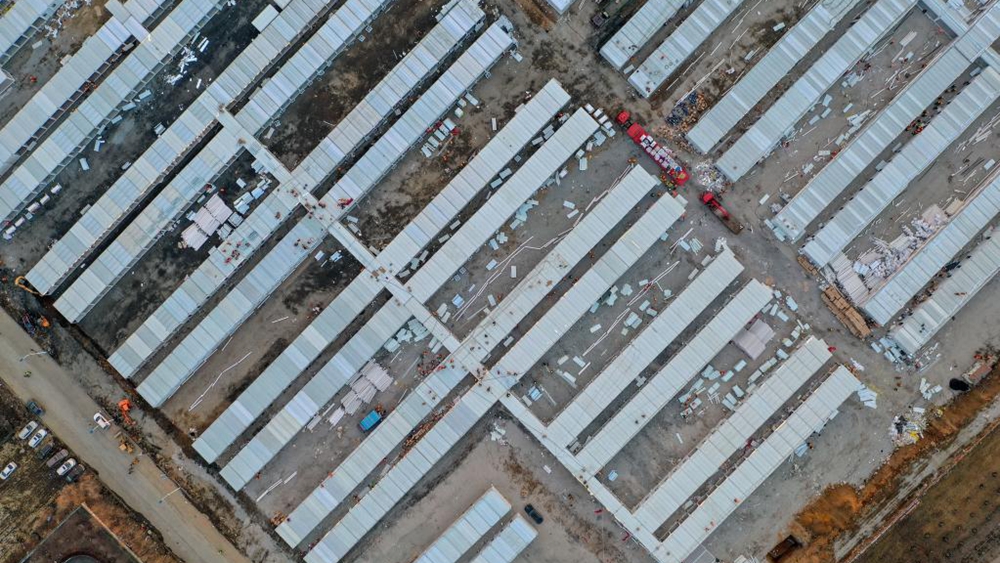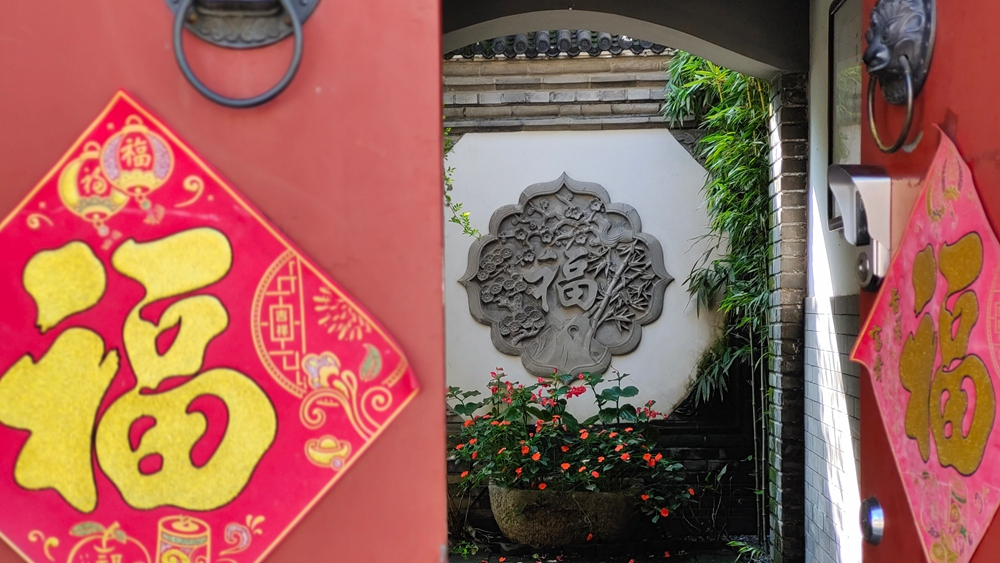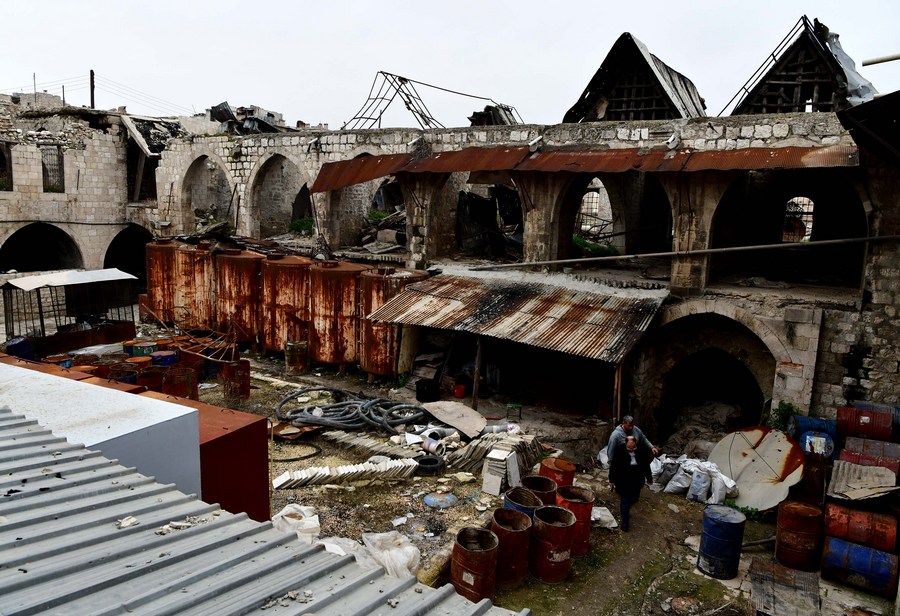
Damaged buildings are seen in the Zanabili soap factory in the old city of Aleppo, northwestern Syria, on March 6, 2022. (Photo by Ammar Safarjalani/Xinhua)
Named after the family that has been managing it for 1,000 years, the Zanabili factory, the oldest olive soap factory in Syria's Aleppo, was heavily damaged during the war. Despite many difficulties, the owner is determined to keep the family brand name alive.
by Hummam Sheikh Ali
ALEPPO, Syria, March 26 (Xinhua) -- Walking into the Zanabili soap factory in the old city of Aleppo in northwestern Syria is somewhat tricky, as the scars of the protracted civil war are still visible here and there.
However, the mesmerizing scent of the natural olive soap would attract visitors to the piles of soap bars, whose touch is so smooth as it is made of natural olive oil.
The Zanabili factory, the oldest olive soap factory in Aleppo named after the family who has been operating it since 1,000 years ago, suffered massive damages as it was located in a battle zone during the war.
In 2012, Zanabili had to leave for a safer place in Aleppo when the Syrian rebels took over the area. However, that didn't bring him down. He continued making soaps in a room inside a house in the city, trying to preserve the family brand name.
When the rebels were expelled in 2016, Zanabili immediately returned to the ancient factory, just to find that 40 percent of it was damaged.
Zanabili didn't quit. He rolled up his sleeves and started repairing the factory while continuing the soap production, even though at a very limited capacity.
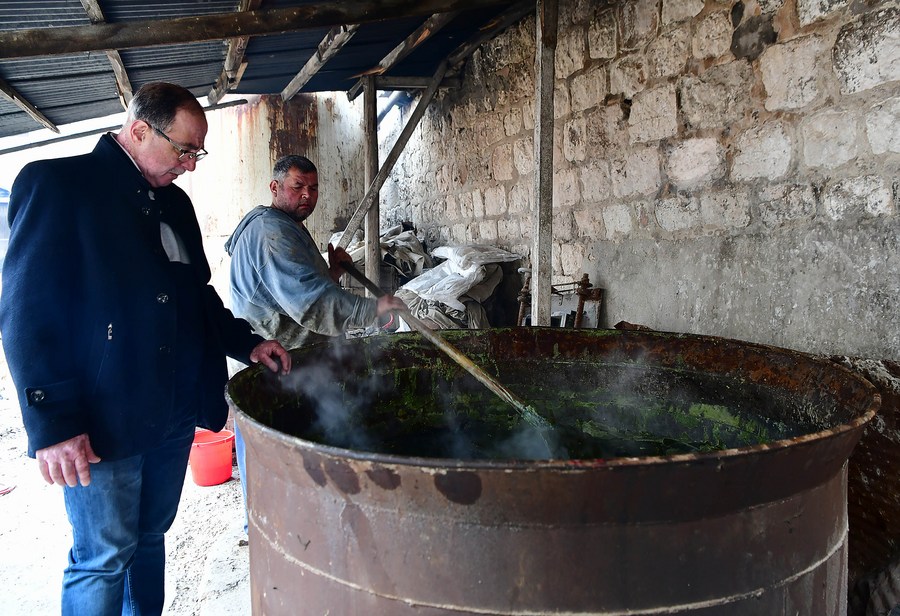
Mazen Zanabili (L), owner of the Zanabili soap factory, inspects the manufacturing of olive soap at his factory in the old city of Aleppo, northwestern Syria, on March 6, 2022. (Photo by Ammar Safarjalani/Xinhua)
Inside the factory, soot deposits could be seen on parts of the walls as result of the fire that erupted during the war. Workers were operating old-fashioned machines to produce the olive soaps.
In general, olive soaps are still being produced in Aleppo in the old-fashioned way, with no complicated machinery involved. This makes it easy for the manufacturers to resume work under any circumstances.
Zanabili is very determined to carry on the family business and preserve the family brand.
"If you leave the souk, people would forget the brand name. That's why I carry it on," he said.
But the troubles caused by the war go far beyond the physical damages. The Zanabili factory, like many other factories in Syria, is also facing other serious problems.
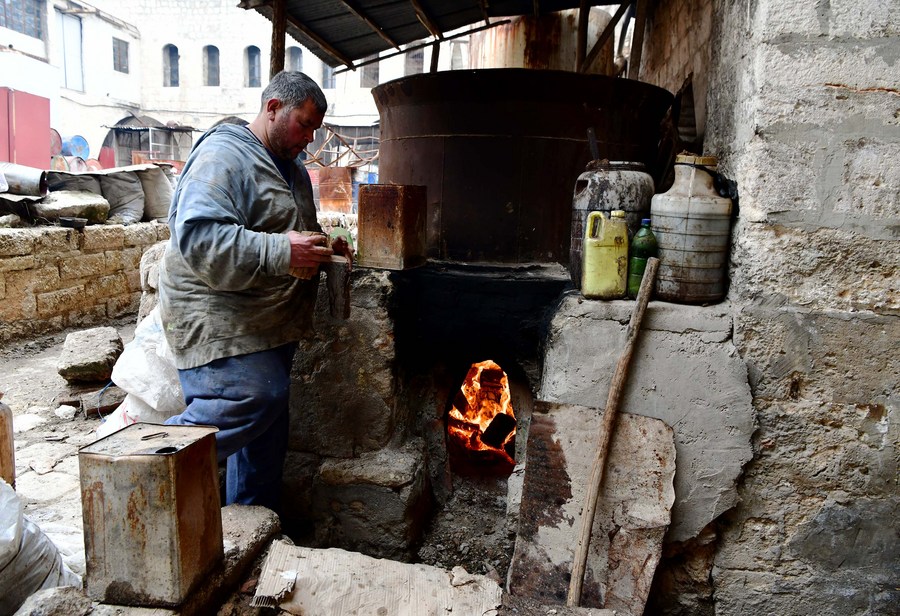
An employee works at the Zanabili soap factory in the old city of Aleppo, northwestern Syria, on March 6, 2022. (Photo by Ammar Safarjalani/Xinhua)
Zanabili said his production has decreased 50 percent due to external and internal factors.
For example, the U.S.-led Western sanctions imposed on Syria have made it very difficult for the factories to conduct bank transactions to facilitate the trade.
He also cited the shortage of electricity supply and high fuel prices as other factors that have added burden on Syrian factories.
"The lack of electricity is a major obstacle, forcing us to operate the machines on fuel and electricity generators, which increased the production cost and then the soap prices, in comparison with neighboring countries," Zanabili said.
The Zanabili factory is also troubled by the attempts of others to steal the brand name amid the chaos of war and sanctions.
Still, Zanabili vowed to continue the struggle to regain his old life and make it even better than before, hoping that his products could reach more countries in the future. ■

